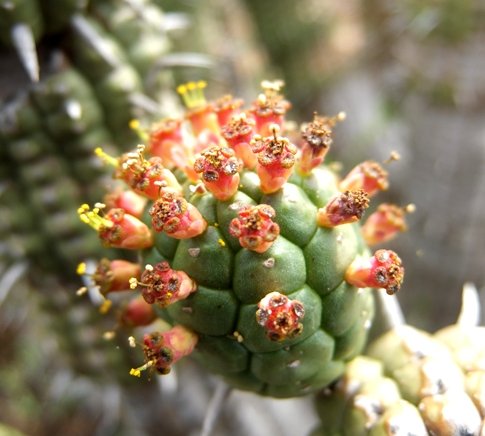Euphorbia mammillaris old male cyathia

Late in the life of male cyathia of Euphorbia mammillaris they turn red and translucent as in the photo. There are still some yellow anthers on some, while others are drying out and turning black, their purpose of existence hopefully fulfilled. Hopefully, because many insect visits should have taken place for pollen transportation to nearby female plants.
The patience of nature involving chance in such an important survival event as pollination, is balanced by overproduction. Propagation security is enhanced by raising the probability of successful hits: many flowers, much pollen, many sticky stigmas and many hungry insects all delivered in close proximity at the same time constitute a success formula proven over millions of years.
Then even the low rain years don’t matter in the lives of hardy perennials. For the insects, some alternative food sources where wing and foot can travel, will ensure survival to be in attendance once more at the next bloom boom (Vlok and Schutte-Vlok, 2010; Wikipedia).

